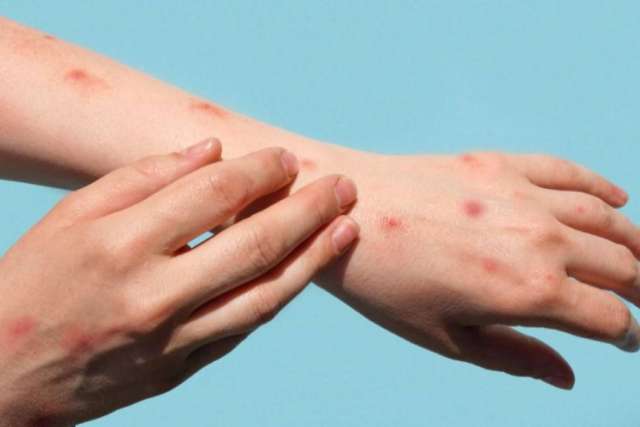
Note: On Nov. 28, 2022, the World Health Organization announced it will begin transitioning from the term "monkeypox," to "mpox," referring to the disease as both for a year while it completely phases out "monkeypox." "WHO will adopt the term mpox in its communications, and encourages others to follow these recommendations, to minimize any ongoing negative impact of the current name," the organization said. WHO is responsible for assigning names to new diseases.
Dear Doctors: How long does the smallpox vaccine stay effective? I ask because I received it as a child in the 1950s. Is it known if the vaccine would be effective against monkeypox some 60 years later, or is a booster needed? Does a booster even exist?
Dear Reader: With cases of monkeypox spreading throughout the world, concern about this rare virus is growing. The disease, which is endemic to central and west Africa, began to appear in Europe and the United States in May. Since that time, the U.S. has recorded more than 350 cases. Yet health officials warn that, due to unfamiliarity with the disease and limited testing, the actual number of cases in this country is likely higher. We’ve discussed this outbreak before, but with cases on the rise, we think a recap is wise.
Monkeypox is related to smallpox, but the disease that it causes is not as severe. For the majority of people who become infected, symptoms are similar to those of the flu. That includes fever, chills, headache, body aches, swollen lymph nodes and fatigue. In more severe cases, patients develop a distinctive rash and lesions, most often on the hands, the face and the soles of the feet.
Monkeypox is not known to linger in the air, and it is not transmitted during brief periods of shared airspace. Instead, the disease most often spreads through direct physical contact with an infected individual, or with their bodily fluids. Because sores may be inside the body, including the mouth, vagina or anus, sexual transmission is possible. The virus can also be spread by contact with items that have touched either the infectious rash or bodily fluids, such as linens or clothing.
An infected individual is contagious from the moment symptoms begin. Those who develop a rash or lesions can continue to spread the disease until the rash has healed completely and is covered by a fresh layer of skin.

Adults like yourself who received the smallpox vaccine during the nationwide program that was in effect from the late 1940s until 1972 are believed to have continuing immunity. This includes members of the U.S. military, who continued to receive smallpox vaccinations until 1991.
The Centers for Disease Control and Prevention says that, based on past data collected in Africa, the smallpox vaccine is at least 85% effective in preventing monkeypox. However, since this situation is so new, the precise degree of protection is not known. Researchers say that while older adults who have been vaccinated against smallpox may be susceptible to monkeypox infection, they are likely to experience only mild symptoms. The data show that the majority of healthy adults who become infected do not become severely ill. And to your question about smallpox boosters, no, they are not available.
To combat this outbreak, the U.S. has just purchased 2.5 million doses of monkeypox vaccine, which bolsters the 500,000 doses already stockpiled. Distribution to high-risk individuals is expected to begin soon. You can find detailed information about smallpox and monkeypox at the CDC website. Visit cdc.gov/poxvirus and click the appropriate link.
Our infectious disease specialists are experts in patient care, research and education. We assist many teams throughout UCLA Health, provide outpatient care and have global reach through our specialized programs. Learn more.
(Send your questions to [email protected], or write: Ask the Doctors, c/o UCLA Health Sciences Media Relations, 10960 Wilshire Blvd., Suite 1955, Los Angeles, CA, 90024. Owing to the volume of mail, personal replies cannot be provided.)



